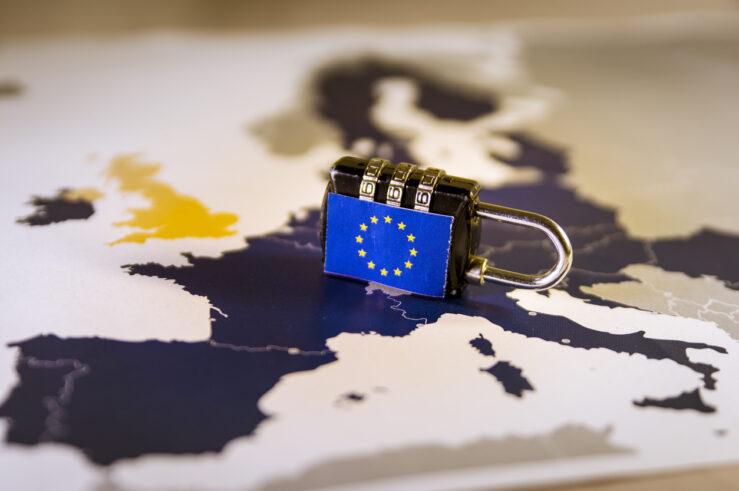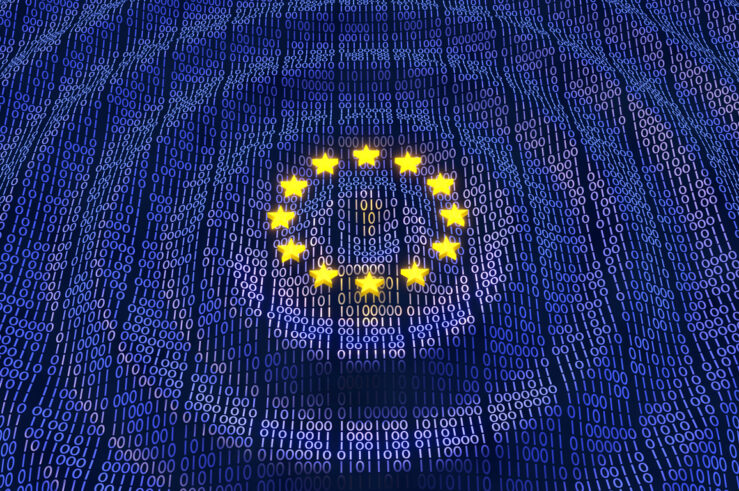Showing archive for: “EU”
Antitrust’s Uncertain Future Roundup: The Minority Report
[TOTM: The following is part of a digital symposium by TOTM guests and authors on Antitrust’s Uncertain Future: Visions of Competition in the New Regulatory Landscape. Information on the authors and the entire series of posts is available here.] Philip K Dick’s novella “The Minority Report” describes a futuristic world without crime. This state of the ... Antitrust’s Uncertain Future Roundup: The Minority Report
The Road to Antitrust’s Least Glorious Hour
Things are heating up in the antitrust world. There is considerable pressure to pass the American Innovation and Choice Online Act (AICOA) before the congressional recess in August—a short legislative window before members of Congress shift their focus almost entirely to campaigning for the mid-term elections. While it would not be impossible to advance the ... The Road to Antitrust’s Least Glorious Hour
The Four Ways of Spending Data
In Free to Choose, Milton Friedman famously noted that there are four ways to spend money[1]: Spending your own money on yourself. For example, buying groceries or lunch. There is a strong incentive to economize and to get full value. Spending your own money on someone else. For example, buying a gift for another. There ... The Four Ways of Spending Data
Commerce Committee Fails to Correct Major Deficiencies in House Privacy Bill
Having earlier passed through subcommittee, the American Data Privacy and Protection Act (ADPPA) has now been cleared for floor consideration by the U.S. House Energy and Commerce Committee. Before the markup, we noted that the ADPPA mimics some of the worst flaws found in the European Union’s General Data Protection Regulation (GDPR), while creating new ... Commerce Committee Fails to Correct Major Deficiencies in House Privacy Bill
Winter in Helsinki
Jouko Hiltunen gazed out the window into the midday twilight. Eight stories down, across the plaza and promenade, the Helsinki harbor was already blanketed under a dusting of snow. By Christmas, the ice would be thick enough for walking out to the castle at Suomenlinna. Jouko turned back to his computer screen. His fingers found ... Winter in Helsinki
AICOA Is Neither Urgently Needed Nor Good: A Response to Professors Scott Morton, Salop, and Dinielli
Earlier this month, Professors Fiona Scott Morton, Steve Salop, and David Dinielli penned a letter expressing their “strong support” for the proposed American Innovation and Choice Online Act (AICOA). In the letter, the professors address criticisms of AICOA and urge its approval, despite possible imperfections. “Perhaps this bill could be made better if we lived in ... AICOA Is Neither Urgently Needed Nor Good: A Response to Professors Scott Morton, Salop, and Dinielli
Privacy, Crypto, and EU Financial Surveillance
European Union lawmakers appear close to finalizing a number of legislative proposals that aim to reform the EU’s financial-regulation framework in response to the rise of cryptocurrencies. Prominent within the package are new anti-money laundering and “countering the financing of terrorism” rules (AML/CFT), including an extension of the so-called “travel rule.” The travel rule, which ... Privacy, Crypto, and EU Financial Surveillance
FTC UMC Roundup – Independence Day Week Edition
Happy Independence Day Week! Having started off with the holiday, this has been a relatively slow week on the antitrust front in the United States. But never fear, Europe is here to help fill out the weekly news roundup. And, even on a slow week there is plenty in the news domestically. Perhaps more important: ... FTC UMC Roundup – Independence Day Week Edition
ADPPA Mimics GDPR’s Flaws, and Goes Further Still
Just three weeks after a draft version of the legislation was unveiled by congressional negotiators, the American Data Privacy and Protection Act (ADPPA) is heading to its first legislative markup, set for tomorrow morning before the U.S. House Energy and Commerce Committee’s Consumer Protection and Commerce Subcommittee. Though the bill’s legislative future remains uncertain, particularly ... ADPPA Mimics GDPR’s Flaws, and Goes Further Still
DMA Update: It’s Still a Privacy Danger
The European Union’s Digital Markets Act (DMA) has been finalized in principle, although some legislative details are still being negotiated. Alas, our earlier worries about user privacy still have not been addressed adequately. The key rules to examine are the DMA’s interoperability mandates. The most recent DMA text introduced a potentially very risky new kind ... DMA Update: It’s Still a Privacy Danger
The Market Challenge to Populist Antitrust
The wave of populist antitrust that has been embraced by regulators and legislators in the United States, United Kingdom, European Union, and other jurisdictions rests on the assumption that currently dominant platforms occupy entrenched positions that only government intervention can dislodge. Following this view, Facebook will forever dominate social networking, Amazon will forever dominate cloud ... The Market Challenge to Populist Antitrust
Chair Khan’s Latest Flawed Perspective on Mergers Ignores Empirics and Sound Economics
Federal Trade Commission (FTC) Chair Lina Khan missed the mark once again in her May 6 speech on merger policy, delivered at the annual meeting of the International Competition Network (ICN). At a time when the FTC and U.S. Justice Department (DOJ) are presumably evaluating responses to the agencies’ “request for information” on possible merger-guideline ... Chair Khan’s Latest Flawed Perspective on Mergers Ignores Empirics and Sound Economics
















